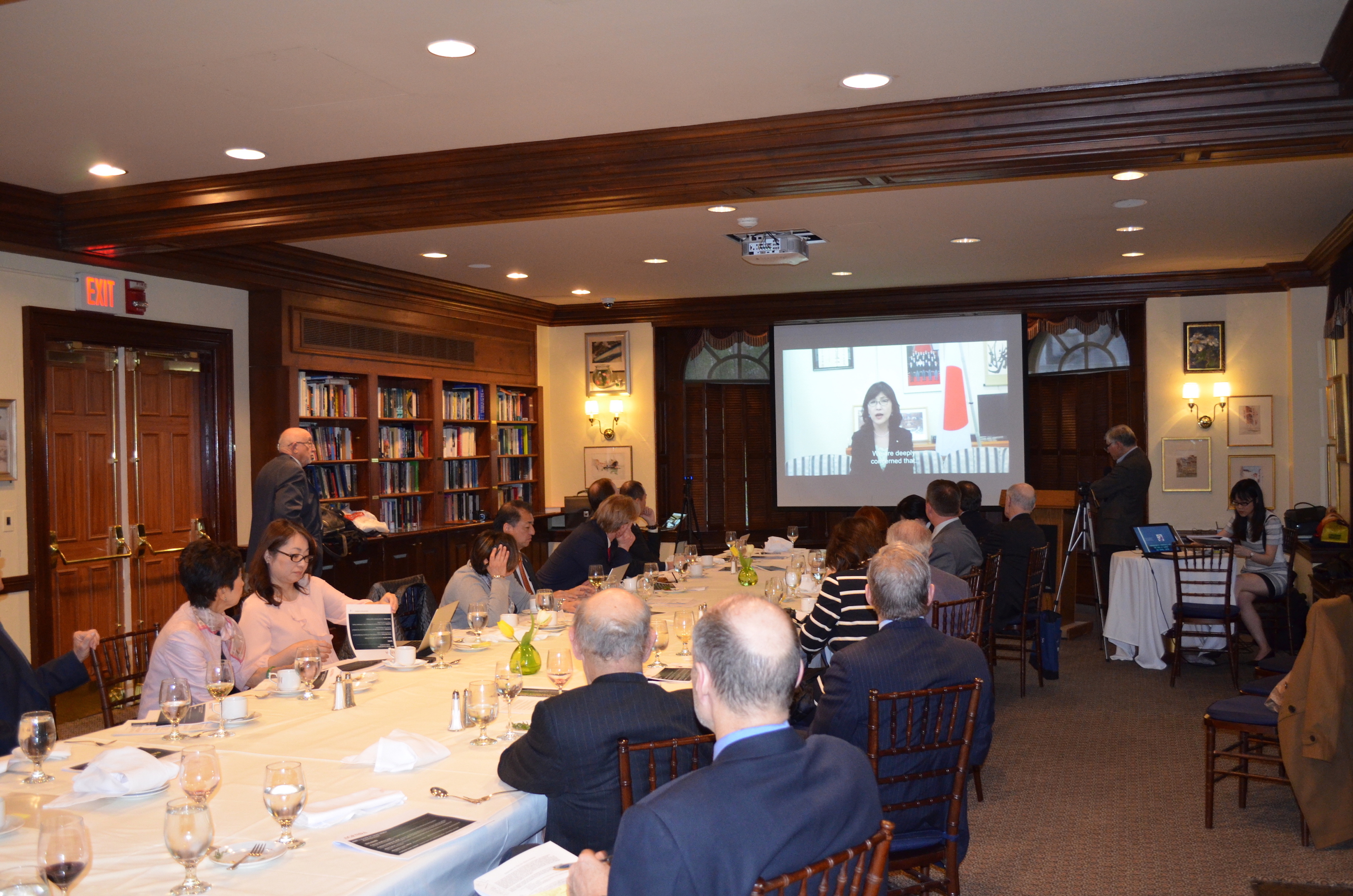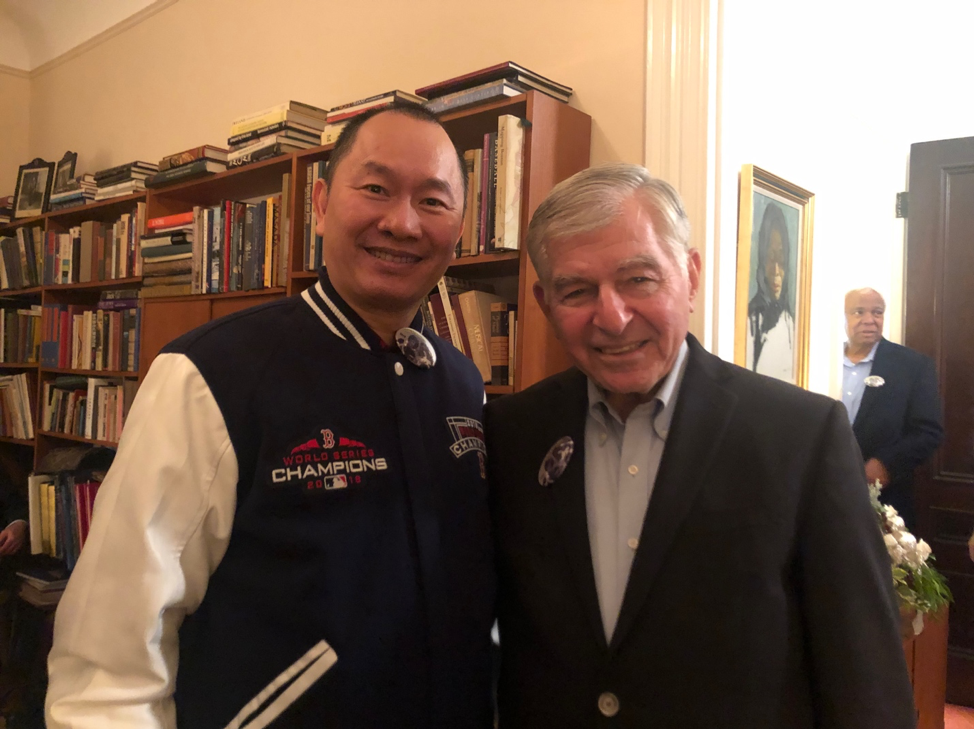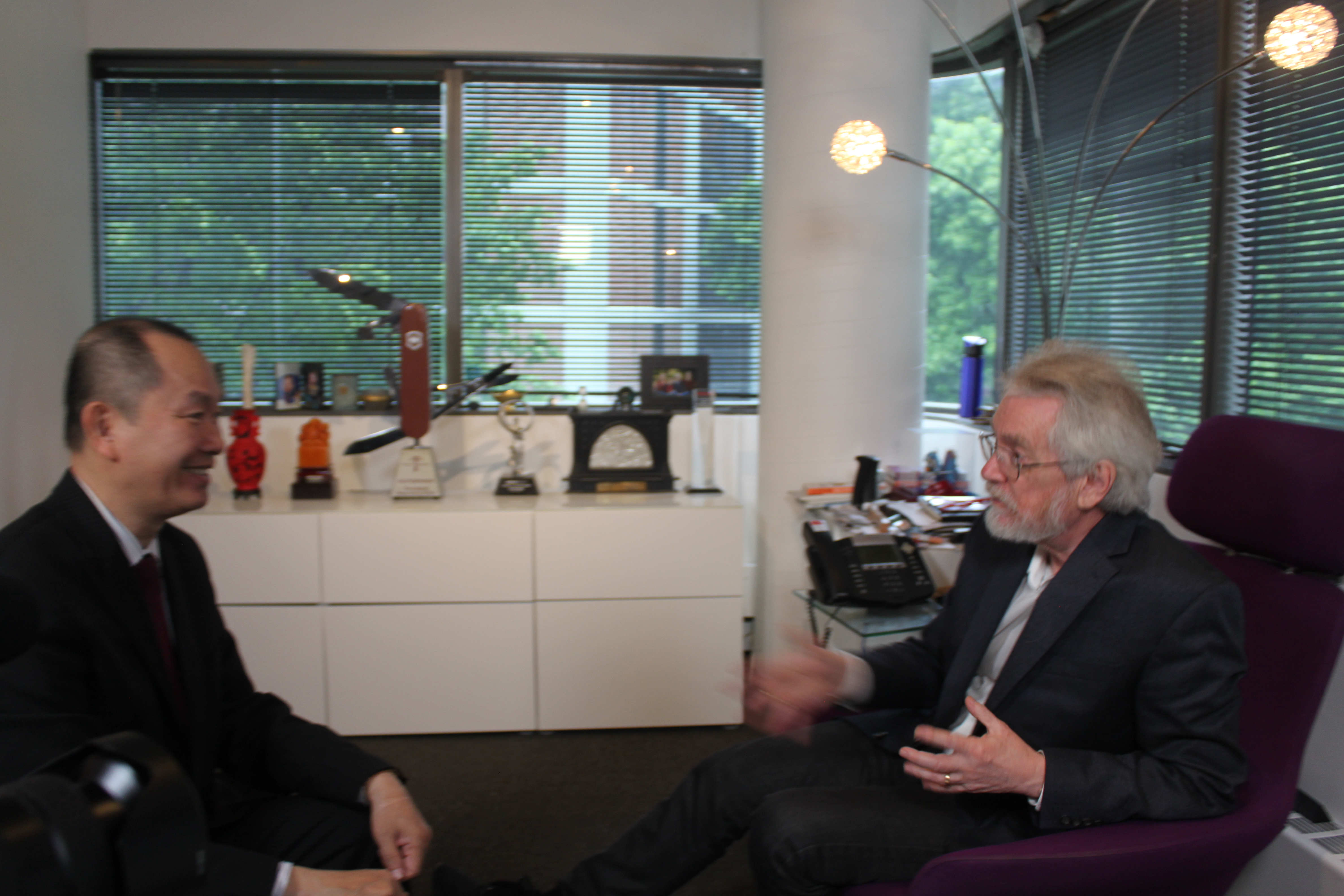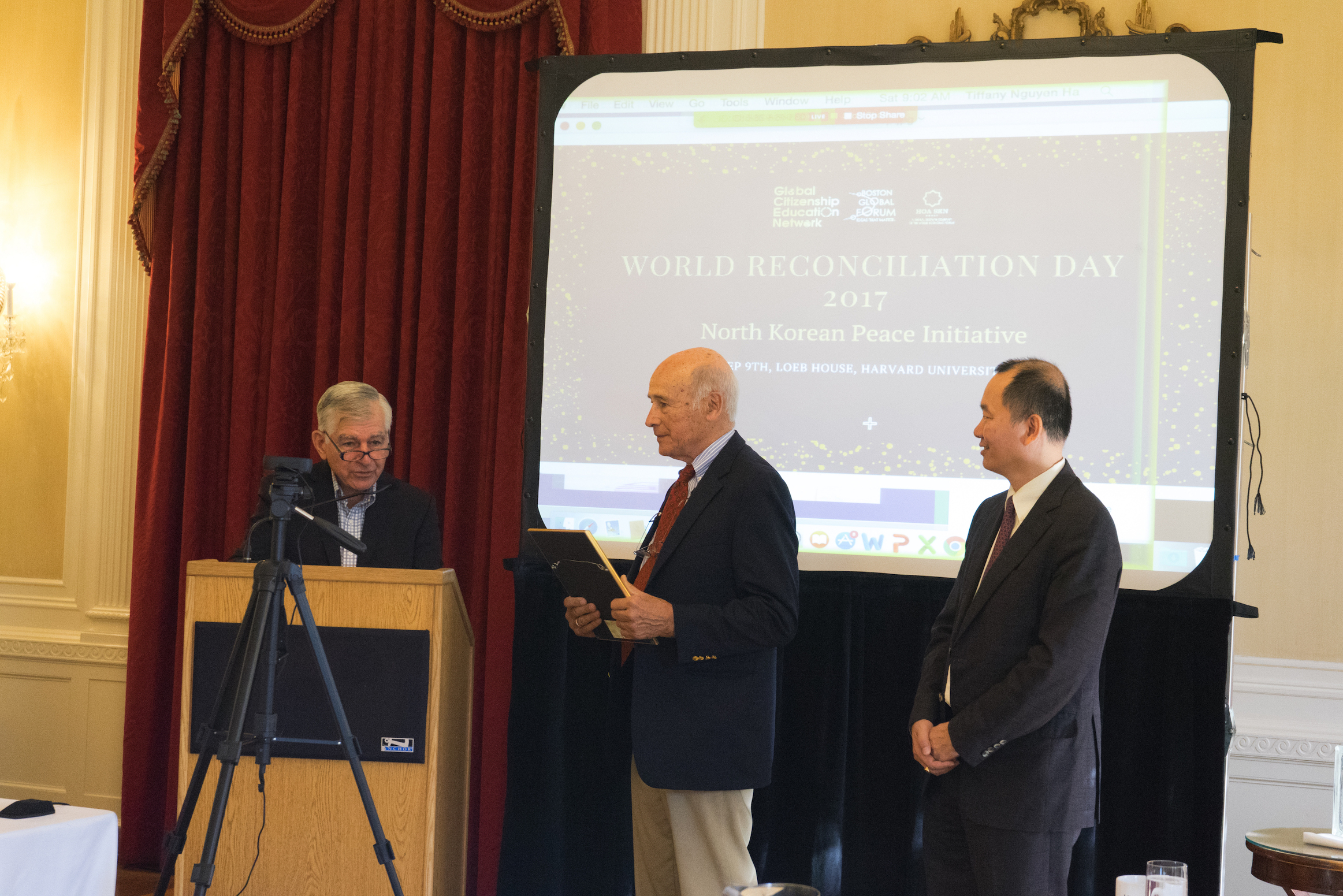
by Editor | Aug 11, 2019 | News
Today, AI touches nearly every aspect of our lives.
Today, more than half the people in the world have access to the Internet.
The flow of Data, AI, Internet, and social media connect us globally, create new information ecosystems, and impact directly the economies of entire countries, the actions of governments, and the every day lives of citizens.
But, what are the rule now? And what should the rules be?
The world should begin to have serious discussions aimed at creating a global consensus about what the rules should be for these powerful forces that are shaping our lives.
Ideally, how would such a globally connected society behave?
What should the aims of such a New Social Contract be?
Could AI, the Internet, and social media be used to help and support democracy, promote transparency, provide openess, and protect the rights of citizens in all nations?
Could it be used to encourage all governments to respect human rights and and observe the conventions of International Agreements?
Could we begin to build a new era of democracy that is enabled, but not threatened by AI, Big Data, the Internet, and social media?

by Editor | Aug 3, 2019 | News
Former Democratic presidential nominee Michael Dukakis sounded the alarm on America’s federal deficit Wednesday on “Your World with Neil Cavuto,” and said if both parties don’t act fast it could spin out of control.
“I’m worried about it on both sides. I mean, I don’t hear either party talking about this and I’m astonished,” he said.
“We’re about to run regular trillion-dollar operating deficits in this country, we’re spending already $600 billion on debt service alone, just servicing the national debt. And I don’t hear anything from either side.
“I don’t know where the Republicans are and we certainly didn’t hear much about it from the Democrats. And I think somebody’s got to start paying attention to this.”
The original article can be found here.
Governor Michael Dukakis is a co-founder of AI World Society Initiative.

by Editor | Aug 3, 2019 | News
Artificial intelligence (AI) technology is an integral part of our daily lives, work, and existence. AI-driven medical diagnostics alert doctors to early warning signs of diseases and conditions, allowing them to provide better treatment for patients and save lives. AI improves the way companies, governments, and other organizations solve the world’s most difficult cybersecurity problems, keeping sensitive networks and data safe. It enables banks and card networks to monitor large volumes of financial transactions and more efficiently identify fraud – and alert consumers in real time. AI helps individuals qualify for credit cards, loans, and mortgages through risk assessments of customers without existing credit, expanding financial opportunities for those who might otherwise be left out.
While the potential benefits of AI technologies are enormous, it is impossible to fully predict the future impact. We know the troubling implications of reported bias in facial recognition technology and in the criminal justice system, for example. Given the reach of AI and its significant life-altering implications – particularly when the civil liberties and freedoms of individuals are at stake – we must address the complex issues the technology presents, including mitigating bias, inequity, and other potential harms. That’s why it is incumbent upon industry, policymakers, educators, and communities to work together to ensure AI is built and deployed for the benefit of everyone.
The original article can be found here.
To promote AI technology for helping everyone achieve well-being and happiness, the Michael Dukakis Institute for Leadership and Innovation (MDI) established the Artificial Intelligence World Society (AIWS) for the purpose of ethical norms and practices in the development and use of AI to serve and strengthen democracy, human rights, and the rule of law.

by Editor | Aug 3, 2019 | News
David Bray, an AI World Distinguished Lecturer, and Jeff Saviano, Chief of Global Tax Innovation, will speak at the Vietnam CEO Summit on August 8, 2019 in Hanoi. The conference is organized by Vietnam Report.
Jeff Saviano will present a flagship initiative about a global tax system as a part of AI-Government. Last year ,Professor Jason Furman and Mr. Nguyen Anh Tuan presented the breakthrough strategy in AI economy for Vietnam at the Vietnam CEO Summit. In their report, they advised the Vietnamese government to do a leapfrog strategy by building the AI-Government.
The National Academy of Public Administration will join Vietnam Report to create special reports from talks and discussions of the Conference for leaders of the Vietnamese government. Boston Global Forum supported in bringing these two speakers to the Vietnam CEO Summit. Both David Bray and Jeff Saviano will attend and speak at the Vietnam National Television’s Talkshow “AI Shaping Futures”.

by Editor | Aug 3, 2019 | News
Deep learning algorithms often require millions of training examples to perform their tasks accurately. But many companies and organizations don’t have access to such large caches of annotated data to train their models (getting millions of pictures of cats is hard enough; how do you get millions of properly annotated customer profiles — or, considering an application from the health care realm, millions of annotated heart failure events?). On top of that, in many domains, data is fragmented and scattered, requiring tremendous efforts and funding to consolidate and clean for AI training. In other fields, data is subject to privacy laws and other regulations, which may put it out of reach of AI engineers.
This is why AI researchers have been under pressure over the last few years to find workarounds for the enormous data requirements of deep learning. And it’s why there’s been a lot of interest in recent months as several promising solutions including hybrid AI models, Few-shot learning and one-shot learning, as well as Generating training data with GANs have emerged — two that would require less training data, and one that would allow organizations to create their own training examples. These innovative AI solutions are also aligned with AI World Society (AIWS) evaluative criteria including data collection methodology and hybrid algorithm to promote and apply openness and transparency in the use and development of constructive AI for human values.
The original article can be found here.

by Editor | Aug 3, 2019 | News
“In 2017, Facebook announced that it was working on a brain-computer interface that designed to let users type by simply thinking words. And today, the company revealed for the first time how far it’s come in its quest to make such a device a reality.
Facebook’s Research Lab is already exploring a promising alternative: infrared. By measuring blood oxygenation levels, Facebook believes that it can create a less bulky — and far less invasive — brain-computer interface.
In other words, Facebook isn’t going to get inside your thoughts any time soon. A device that can allow us all to move a mouse, type Facebook comments, and play games with our thoughts alone is still many years, if not decades, out.
And it’s also bound to raise plenty of questions concerning privacy. Our thoughts are one of the last safe havens that have yet to be exploited by data hoarding big tech companies.”
The original article can be found here.
Boston Global Forum is building the Social Contract 2020 as a part of AI World Society Initiative. The Social Contract 2020 will include human brain-computer interface.

by Editor | Aug 3, 2019 | News
Social Physics is a new way of understanding human behavior based on analysis of Big Data.
In contemporary society we have access to an incredible array of data on social interaction. This abundance of data provides a social science nirvana which allows us to begin to know ourselves in a way we never could before.
Often described as a computational social scientist, Alex “Sandy” Pentland sees his role as being to “help the birth of the world into a data rich environment.”
His research introduced the modest origins of social physics and how the proliferation of data and innovative statistical methods have allowed the field to thrive.
Pentland’s own experimental trajectory reflects those advances. He describes past experiments which observed small groups of people interacting, measuring body motion signalling using tools such as recorders or wearable badges. Now his work has scaled up to the measurement of entire cities, providing fascinating insights into networks of interactions and their implications. Macro-level research can predict a city’s success by looking at its network of relationships, and can even explain surprising recent political outcomes. Meanwhile, at the micro-level, research within corporations can predict innovation and creativity according to interactions.
He describes how the revolution in technology is facilitating the use of social physics in measuring indicators such as poverty, inequality, and sustainability. This allows us to move beyond limited measures such as census data and GDP. With research showing that development aid works better when measurable, Pentland posits that we can, “through knowledge of ourselves, build a better world.”
Professor Alex Sandy Pentland plays a key role in building the Social Contract 2020.

by Editor | Jul 28, 2019 | News
Governor Michael Dukakis, co-founder and chairman of the Boston Global Forum, would like to build a framework for peace and security in the 21st century. The framework is based on democracy, openness, transparency, freedom of information, accountability, responsibility, and protection of the environment. It is standards and norms for the world today.
The US, China, Russia, the EU, India and Japan all play very important roles to maintain peace and security in the world.
To solve conflicts, Governor Dukakis calls for a forum between these nations and countries in conflict and highly contested regions, based on common standards, norms and international laws, to generate solutions.

by Editor | Jul 28, 2019 | News
Machine learning continues to be one of the toughest skills to acquire. The domain is as vast and as complex as the field of computer science. Developers will have to learn new languages, algorithms, frameworks, tools from an extremely diverse and fragmented ecosystem. They need to learn how to use the cloud to train the models and optimizing those models to integrate with a variety of environments and platforms.
The complexity multiplies when we attempt to take the models to the edge. Each model has to be converted to take advantage of the underlying CPU and GPU architecture. Mainstream inferencing platforms with accelerators such as NVIDIA Jetson, Intel Movidius, and Google Edge TPU use different optimization techniques to run models at the edge. Developers need to learn the nuts and bolts of the hardware and software stacks to even run a simple AI-enabled application at the edge.
While the top cloud vendors are busy in turning their platforms into preferred training environments for deep learning, startups such as Xnor.ai are moving fast in simplifying the integration of AI with edge devices and off-line applications. The development of AI on edge also supports to expand AI on IoT devices and applications for helping people achieve well-being and happiness in a daily life, which is also promoted by AI World Society (AIWS) and Michael Dukakis Institute (MDI).
The original article can be found here








